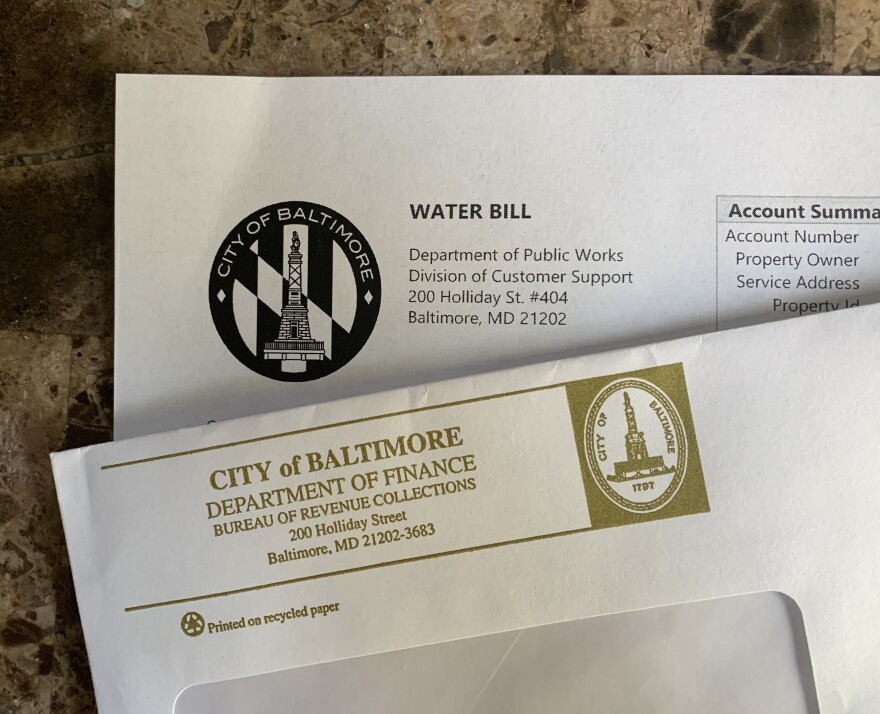Baltimore’s Board of Estimates is expected to vote Wednesday to raise water, sewer and storm water rates.
According to a proposal from the city's Department of Public Works, water and storm water rates would increase by 3 percent each year for the next three years while sewer rates would jump by 3.5 percent every year during that same period.
That adds $3.75 each month to the average residential customer bill of $118 starting July 1 next year, according to the public works department. By comparison, households in Washington, D.C. paid on average $118 monthly whereas Philadelphia residents pay $73 and those in Detroit pay $75 trying to maintain similar infrastructure.
In 1997, the typical household water bill in Baltimore was about $12.83 but that does not include new fees added over the years such as the Chesapeake Bay Restoration Fee, infrastructure fees and account management fee.
The jumps in water, sewer and storm water rates are needed to cover the increased costs of maintaining the system, public works officials said.
"Over the years, DPW has significantly invested in our aging infrastructure to preserve the quality of our system," according to a statement from the Baltimore Department of Public Works.
In 2019, the city approved a 10 percent increase in water and sewer fees for a three year period.
“Folks in our city have been really overburdened with rate increase after rate increase,” said Rianna Eckel, senior Maryland organizer of the group Food and Water Watch, a nonprofit organization.
Eckel said her organization is concerned that the city has yet to fully comply with new rules under The Water Accountability and Equity Act passed in 2018 and delayed during the coronavirus pandemic. That legislation was meant to address concerns about affordability of water bills and transparency of the department. But the city has yet to create the Office of Water-Customer Advocacy and Appeals, which would assist customers who want to dispute bills.
“I think one of the issues is that there’s an enormous lack of trust with the department because there has been so many issues with water billing mistakes,” Eckel said.
In February, the city began a new water discount program known as Water4All which caps the cost of water and sewer based on income, one of the keystones of the water accountability legislation.
The city is poised to reimburse the state’s Department of the Environment for maintenance costs for repairs at its Back River Wastewater Treatment Plant, though a final decision is pending a vote by the Board of Estimates.
The city must lower the volume of nitrogen and phosphorus in the processed wastewater that is discharged into the Back River and eventually drains into the Chesapeake Bay.
“We can’t choose between affordable water service and quality, it has to be both,” Eckel, the community organizer said.








